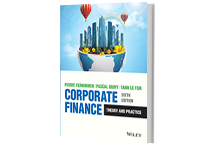Comment, question or quotation of the day
29-03-2025 : Why are you complaining about your bank's IT?
Did you know that the European prudential regulator requires banks to deduct from their equity not only goodwill paid on acquisitions, but also the unamortized value of their software, whether purchased or developed in-house, in order to achieve the required prudential equity?
This rule has a direct impact on banks' ability to finance the economy.
But the American prudential regulator does not.
This means that when a U.S. bank acquires software for 1000, it is weighted at 100% for the calculation of prudential capital requirements, resulting in an equity requirement of around 120. By contrast, when a European bank spends the same amount, the equity it needs to raise is 1,000, i.e. 8 times more. The result? 880 less to finance economic development on this side of the Atlantic than on the other.
Far from being anecdotal, this constraint weighs heavily on European banks. For BNP Paribas, for example, this rule reduces its prudential capital by €2 billion, limiting its capacity to absorb €15 billion in weighted average risk. That's a lot of credit!
With such prudential treatment, it's hardly surprising that European banks are thinking twice before increasing their investment in software. So the next time you're grumbling, for example, that your bank doesn't yet offer you electronic signatures to validate this or that document, take solace in the fact that this avoids reducing credit to SMEs in your area.
The European banking regulator, who introduced this measure in the early 2010s in a completely different context, might think about revisiting it, now that solvency ratios have changed completely. Over-transposing Basel III in relation to the US is tantamount to shoot ourselves in the foot. The current context should make this realization easier.
In 2008, JP Morgan had a capitalization of €75 billion, while the top 10 banks in the euro zone had a combined capitalization of €510 billion. Today, JP Morgan is worth €610 billion, as much as the top 8 banks in the eurozone combined. Admittedly, the treatment of software in regulatory capital explains only a small part of this reversal, but that's no reason to maintain the status quo.
23-03-2025 : ROE or ROTE ?
In addition to return on equity (ROE), banks are accustomed to calculating return on tangible equity (ROTE), which is calculated by dividing net income for the year by shareholders' equity less intangible assets, mainly goodwill.
In practice, ROTE is higher than ROE. For Citigroup, ROE 2024 is 6.1% and ROTE is 7%.
While it's understandable that banks are sensitive to the notion of tangible equity, since the European banking regulator's prudential ratios remove intangibles from book equity, it's a different story for shareholders. Continuing with the example of Citigroup, shareholders have contributed or left at the disposal of their company $190 billion in equity. In addition, Citigroup has goodwill of $19 billion, giving tangible equity of $171 billion.
Citigroup's shareholders have contributed, or decided not to pay out in dividends or share buybacks, $190 billion. Logically, it is on this sum that they wish to obtain their required rate of return, not on $171 billion of tangible equity. In fact, just because management spent part of this $190 billion on acquisitions that resulted in the recognition of goodwill, doesn't mean that shareholders have given up all hope of receiving a return on the $19 billion that has fallen into a calculation hole.
If management now believes that this goodwill is worthless, it has a duty to write it off, to recognize a loss of $19 billion. But if they haven't done so, it's because they don't consider the goodwill to be worthless. There is therefore no reason to remove them from shareholders' equity when calculating profitability, even if this improves the quotient.
In our opinion, there is no reason to publish ROTEs other than to dress up the bride. It's worth noting that in the United States, banks communicate on these two returns, whereas in Europe, communication is focused on return on tangible equity.
In these times of a partial return to favor for banking stocks, isn't it time to simplify communication by publishing only return on equity (ROE)? Admittedly, they'll be a little less good, but this would stop the impression being created that shareholders are being taken for fools.
European banks will also benefit from the elimination of the correlative reference to tangible equity per share, which since 2011 has often been seen as an unsurpassable horizon for the share price, and to which a discount is applied. If a discount is to be applied, let it on the higher basis of equity per share.


Glossary
The Vernimmen.com glossary provides definitions for a couple of thousands of financial, stock market or economic terms.
This financial dictionary allows beginners to progress in their learning of finance and to experts to cease the precise meaning of a sentence.

Quiz
The Vernimmen.com Quiz offers over 300 questions with answers to progress in your understanding of finance and to test your knowledge.
Questions are sorted by key topics (financial analysis, investment and stock markets, value, financial engineering and financial management).

Survey
We frequently ask our readers to give us their point of view on a specific topic.
You will find here the current survey with the to-date status of answers as well as past polls.

Financial data
Thanks to our partner Infinancial, we can offer on this page financial data on over 16 000 groups around the world.
Updated several times a year, this database offers information sometimes hard to find elsewhere (beta, …)
The Vernimmen.com Letter
Number 162 of January 2025
News : BRVM or Columbus's chicken and egg at the West African Stock Exchange
Statistics : Late payments in Europe in the first half of 2024
Research : A global assessment of the carbon premium
Q&A : Do free cash flows have to be distributable to be included in the DCF calculation?
COMMENTS : Comments posted on Facebook



